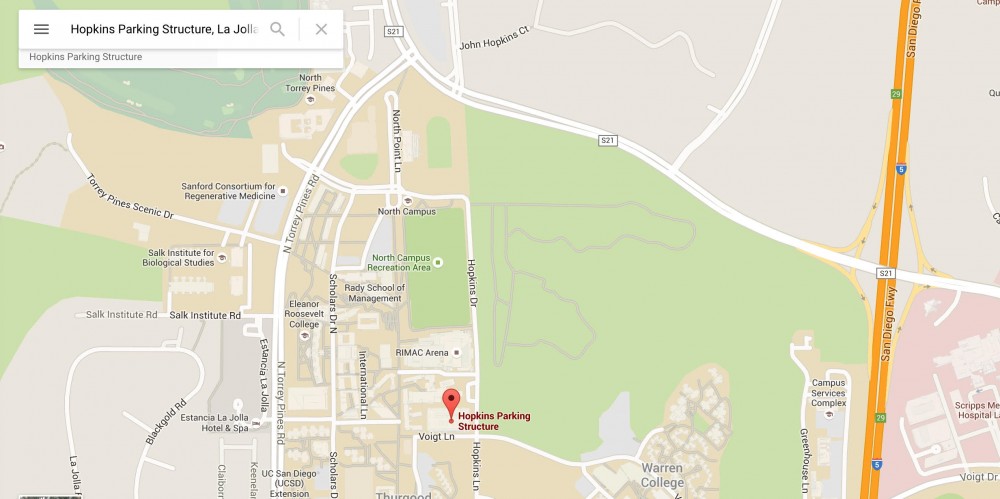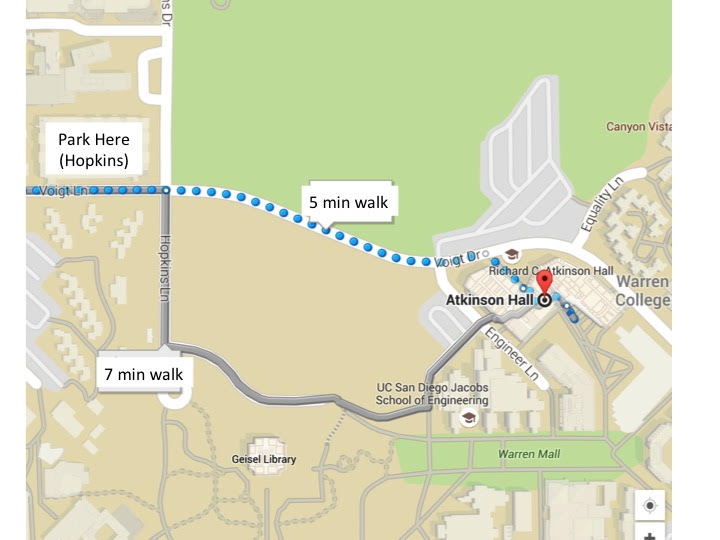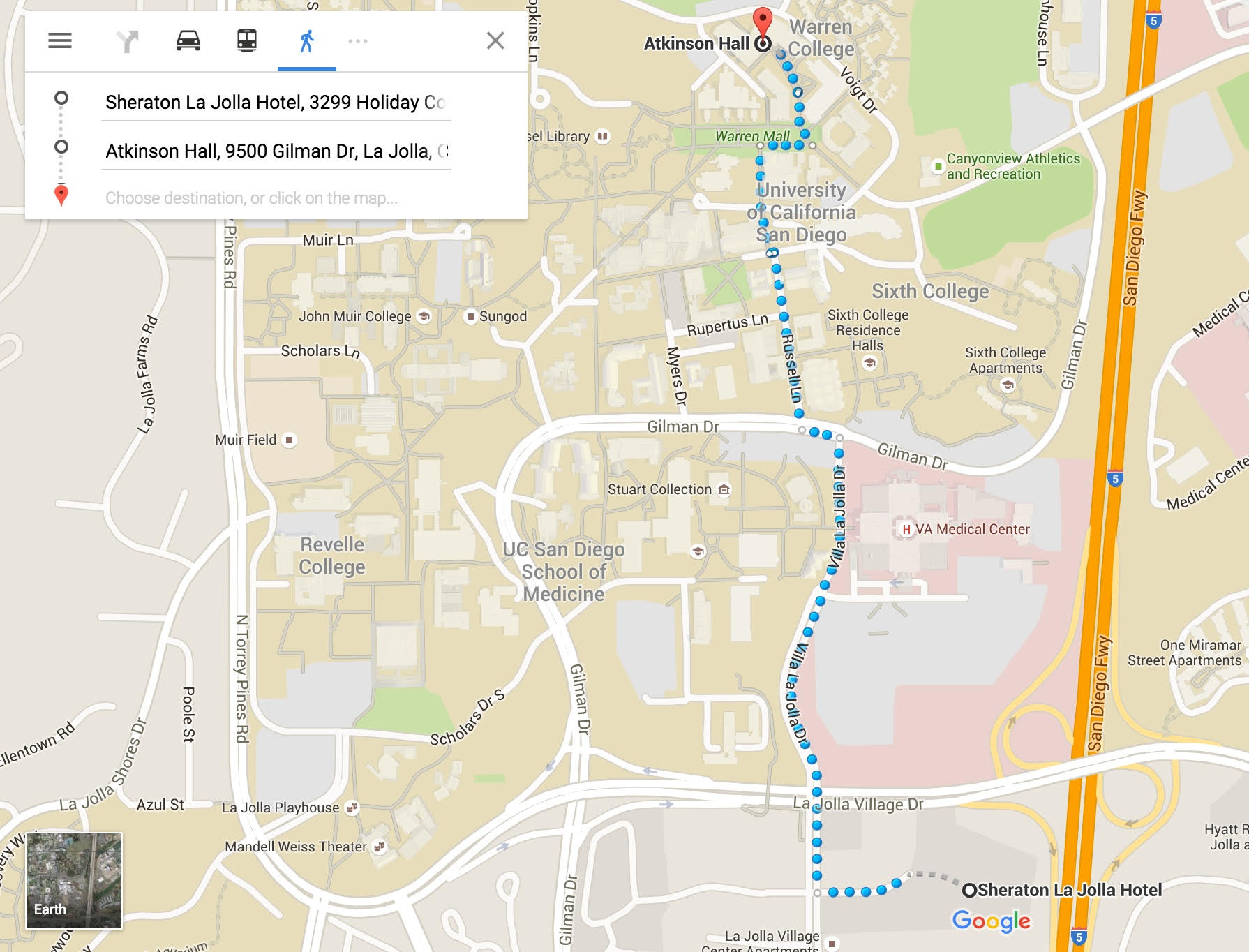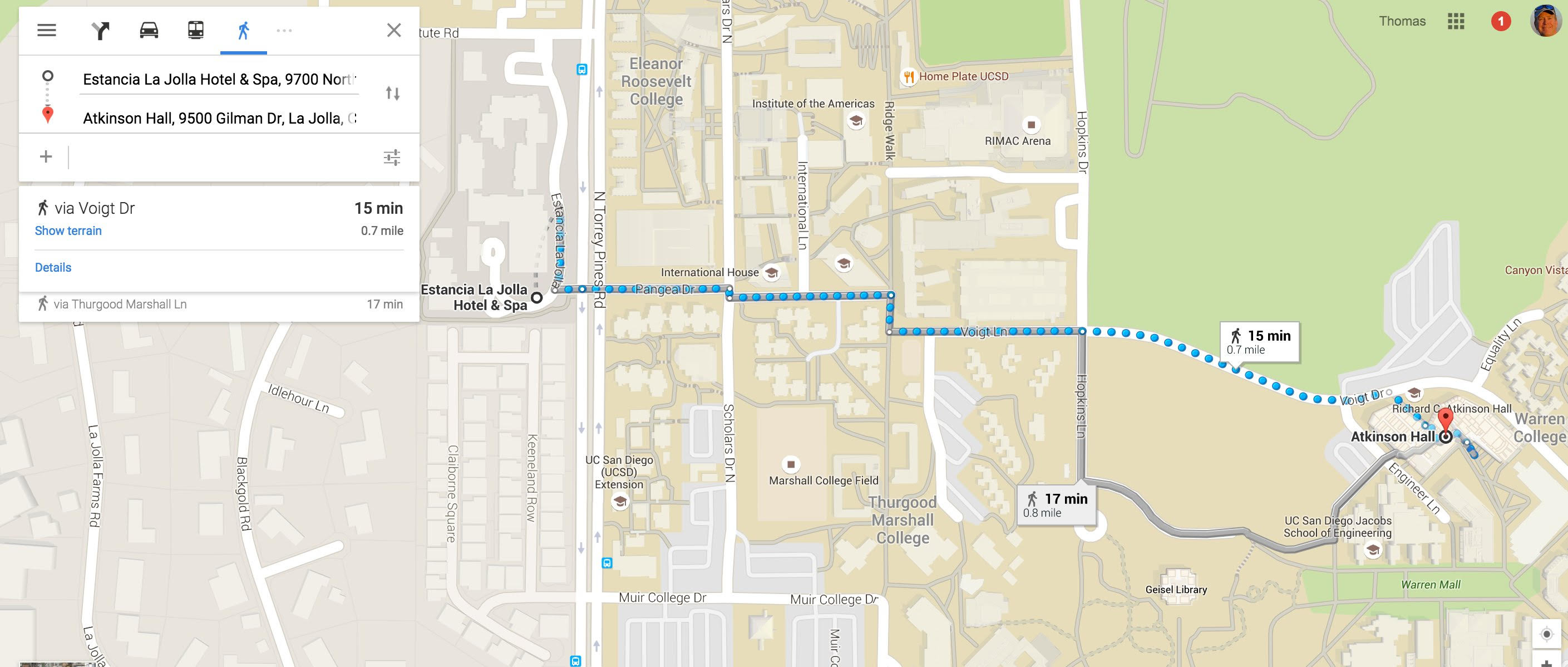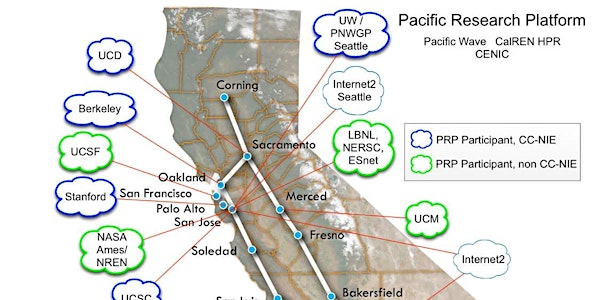
Building the Pacific Research Platform: A Workshop Towards Deploying a Science-Driven Regional “Big Data Freeway”
Date and time
Location
Qualcomm Institute/California Institute for Telecommunications and Information Technology2
Atkinson Hall, UC San Diego La Jolla, CA 92093Description
Building the Pacific Research Platform
Save the Dates: October 14-16, 2015
A Workshop Towards Deploying a Science-Driven Regional “Big Data Freeway”
Calit2's Qualcomm Institute and SDSC, UC San Diego
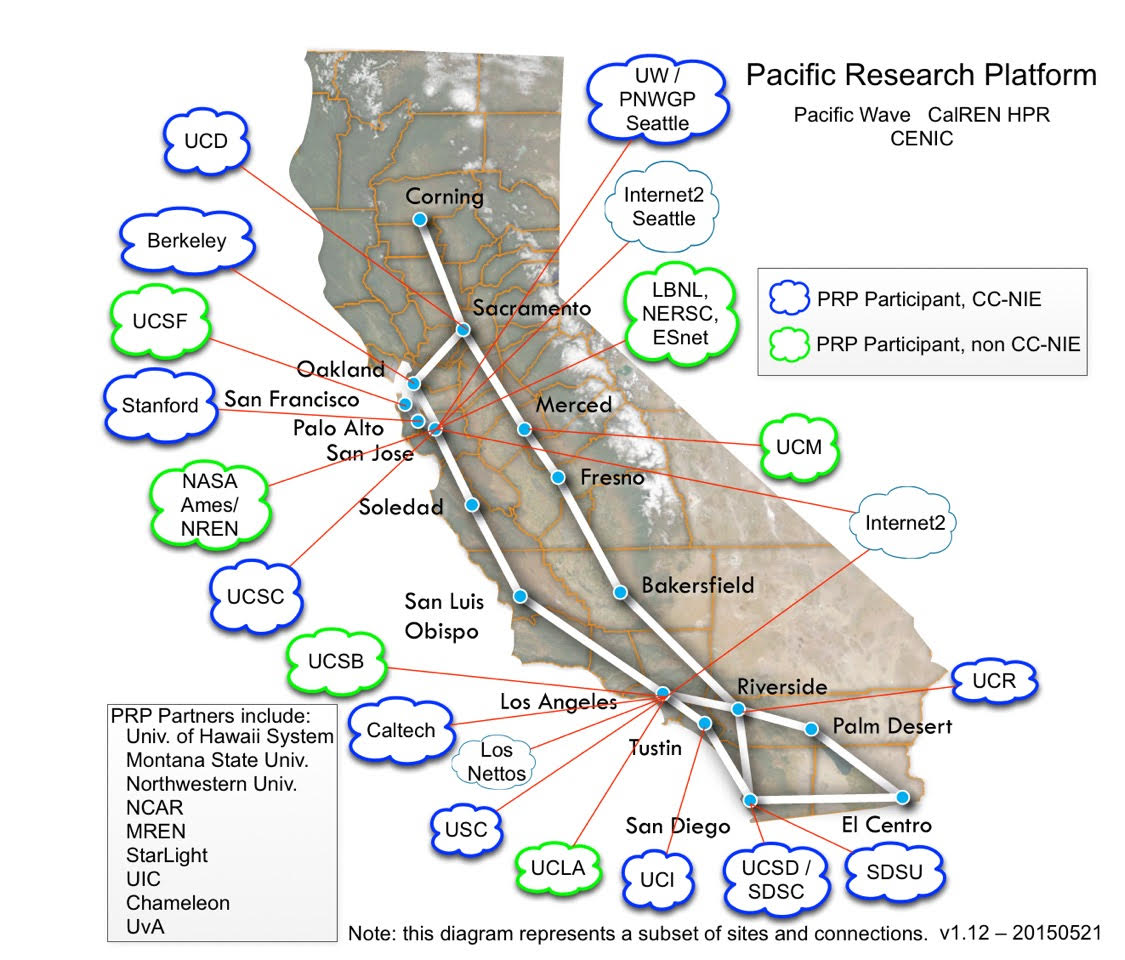
Calit2's Qualcomm Institute, UC San Diego's San Diego Supercomputer Center, and CITRIS invite you to participate in a workshop to discuss deployment of a science-driven regional “Big Data Freeway,” the Pacific Research Platform. Funded by the National Science Foundation, this 2.5-day workshop at UCSD will bring together CIOs and their staff, scientists and their technical staff, and the network architects and implementers from 20 regional institutions to discuss the opportunities and challenges for data-intensive collaborative science.
Many research disciplines are increasingly multi-investigator and multi-institutional, and need ever more rapid access to their ultra-large heterogeneous and widely distributed datasets. In response to this challenge, the Department of Energy’s ESnet has developed the Science DMZ model, defined as “a portion of the network, built at or near the campus or laboratory's local network perimeter that is designed such that the equipment, configuration, and security policies are optimized for high-performance scientific applications rather than for general-purpose business systems or ‘enterprise computing.’” NSF has funded over 100 U.S. campuses through CC-NIE/IIE grants over the past 3 years to aggressively upgrade their network capacity for enhanced science data transport.
The next logical step is to build on the NSF campus investments and establish a science-driven high-capacity data-centric “freeway system.” The Pacific Research Platform (PRP) partnership will extend the campus Science DMZ model to a regional model for data-intensive networking, enabling researchers to move data to/from their labs and their collaborators’ sites, supercomputer centers or data repositories, enabling the data to traverse multiple, heterogeneous networks without performance degradation. The PRP’s data-sharing architecture, with end-to-end 10-100Gb/s connections, will enable region-wide virtual co-location of data with computing resources.
The October workshop at UCSD will address interoperability of Science DMZs at a regional level. Participation is expected from all 10 campuses of the University of California and its medical centers, as well as the major California private universities, four supercomputer centers, several leading universities outside California, CENIC, National Labs, and other key implementers. The workshop will demonstrate a working prototype of the PRP, enabling researchers across the platform to move large datasets rapidly to where they work.
Acknowledging that campuses operate with a variety of constraints and technical implementations of the Science DMZ model, the workshop will identify methods to achieve high-performance interoperability across heterogeneous Science DMZ implementations. The workshop will focus on this regional set of partners and a specific set of driving scientific applications to serve as initial use cases.
Support for this Workshop has been received from National Science Foundation awards ACI-1246396, ACI-1540112 and ACI-1541349, and the University of California Office of the President.
Please register for the days you wish to attend and indicate any dietary restrictions at http://pacific-research-platform-2015.eventbrite.com. There are no registration fees. If you have questions, please email Johnny Nguyen, jnguyen@eng.ucsd.edu.
The Program:
Thursday, October 15, 10:00 to 6:00, will be devoted to researchers and technical experts in science-driver applications describing their needs for high-speed data transfer, and their successes and frustrations. Sessions will be held in UC San Diego's Atkinson Hall.
Friday, October 16, 8:40 to 4:30, will provide time for network engineers to describe their plans for deploying the 20-institution Pacific Research Platform, also in Atkinson Hall.
The program also includes an optional session on Wednesday morning, October 14, from 10:00 to 12:00, to introduce the Pacific Research Platform to partner campus IT managers. Wednesday afternoon will feature SDSC’s combined 30th anniversary and Comet launch celebration, to which all workshop attendees are invited.
Parking information will be sent to registered attendees by October 7.
FAQs
Where can I contact the organizer with any questions?
Johnny Nguyen, jnguyen@eng.ucsd.edu
Is there parking information available?
Parking information will be sent to registered attendees by October 7.
Additional Documents
DOWNLOAD: Directions to the PRP Workshop - Wednesday, October 14
DOWNLOAD: Workshop Program - Wednesday, October 14
DOWNLOAD: Workshop Program - Thursday, October 15
DOWNLOAD: Workshop Program - Friday, October 16
Organized by
Calit2
The Qualcomm Institute is the UC San Diego division of the California Institute for Telecommunications and Information Technology (Calit2), a two-campus research institute founded in December 2000 by UC San Diego and UC Irvine. Calit2 is one of four state-funded Gray Davis Institutes for Science and Innovation located on University of California campuses. At UC San Diego, the Qualcomm Institute brings together more than 350 faculty members and nearly 120 technical and professional staff on the La Jolla campus, as well as hundreds of graduate and undergraduate students and postdoctoral researchers. The institute’s interdisciplinary strategic vision ranges from brain science to robotics, and stresses collaborative research in four broad application areas – culture, energy, the environment, and health – as well as four enabling technologies (wireless, photonics, cyberinfrastructure, and nano-micro-electromechanical systems).
San Diego Supercomputer Center
As an Organized Research Unit of UC San Diego, The San Diego Supercomputer Center (SDSC) is considered a leader in data-intensive computing and cyberinfrastructure, providing resources, services, and expertise to the national research community including industry and academia. Cyberinfrastructure refers to an accessible, integrated network of computer-based resources and expertise, focused on accelerating scientific inquiry and discovery. SDSC supports hundreds of multidisciplinary programs spanning a wide variety of domains, from earth sciences and biology to astrophysics, bioinformatics, and health IT. SDSC is a partner in XSEDE (Extreme Science and Engineering Discovery Environment), the most advanced collection of integrated digital resources and services in the world.
CITRIS
The Center for Information Technology Research in the Interest of Society (CITRIS) creates information technology solutions for society’s most pressing challenges.
